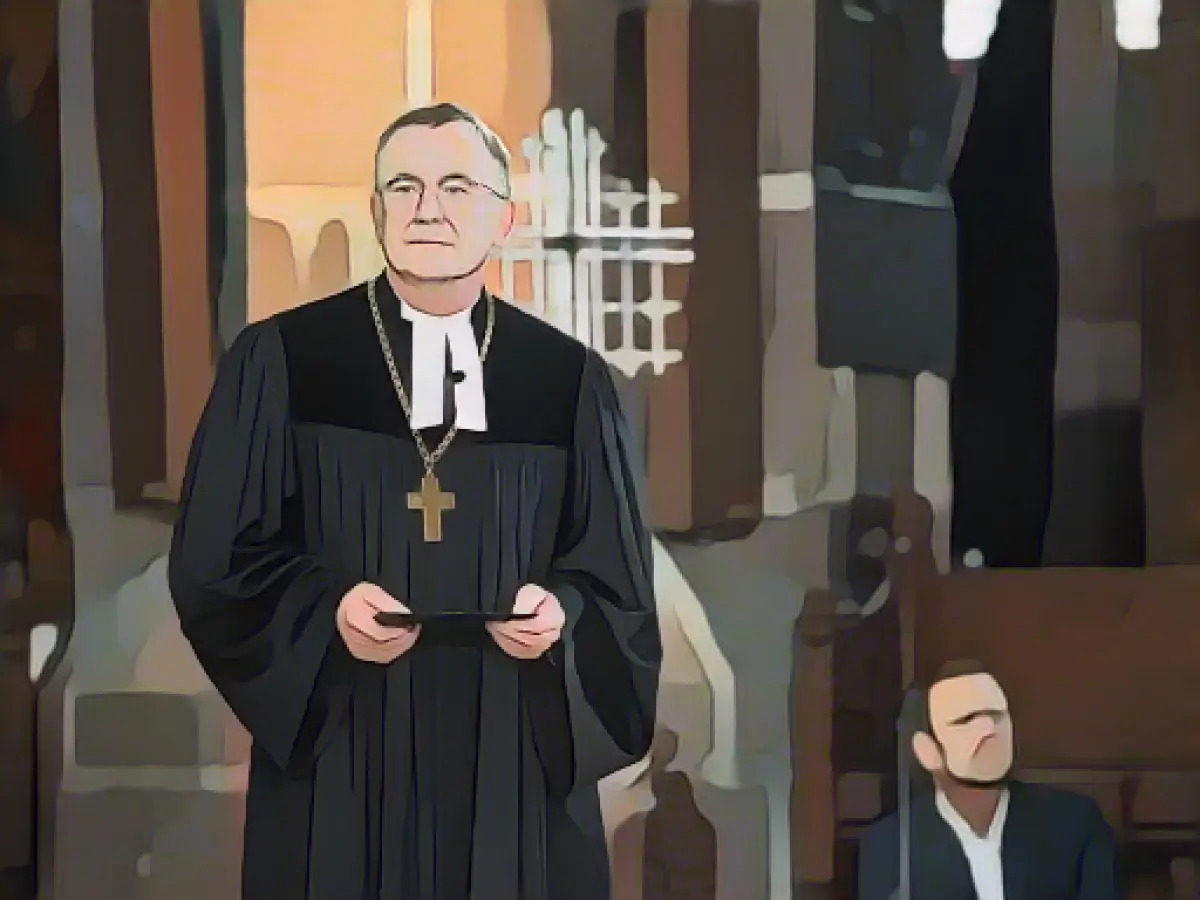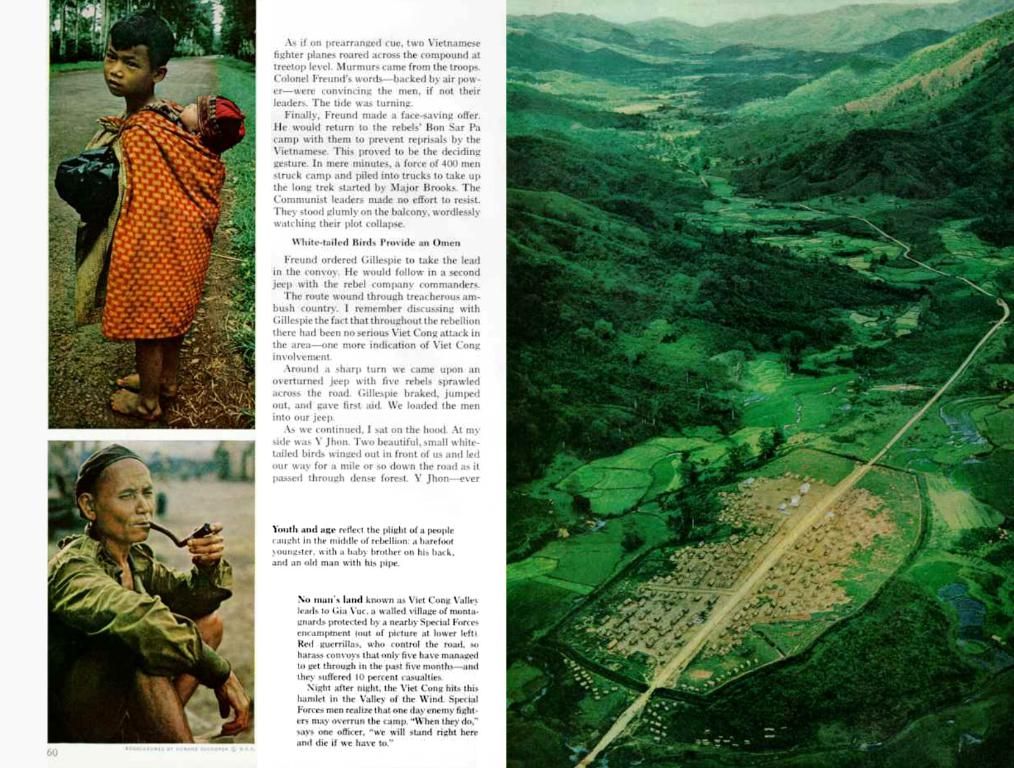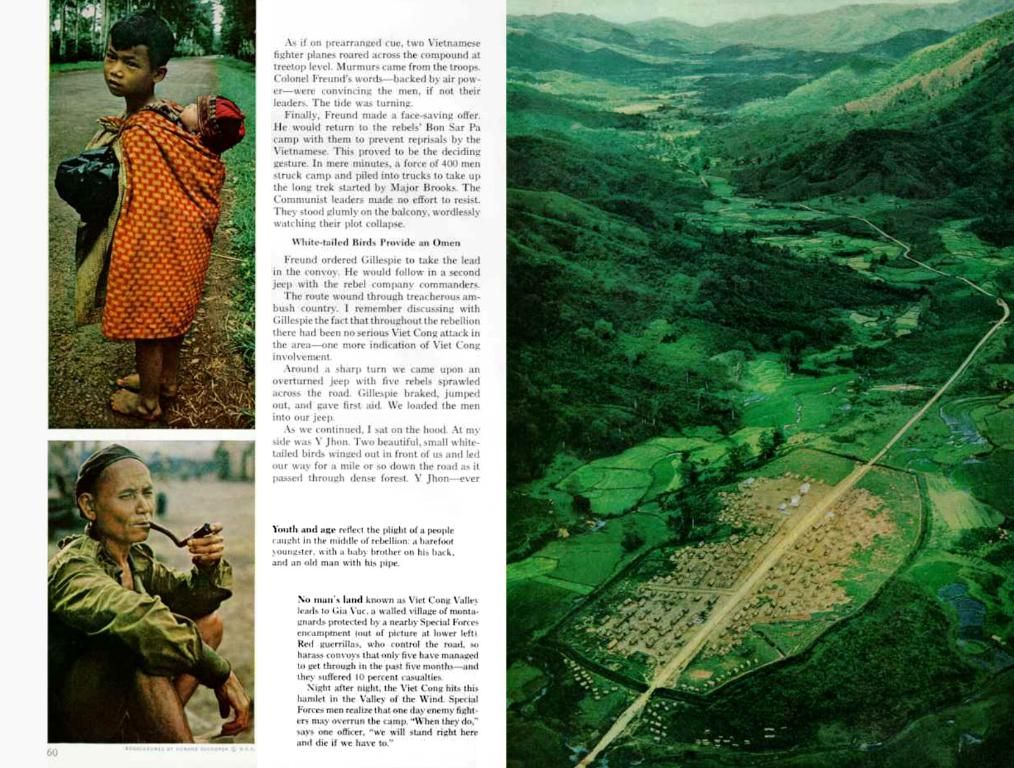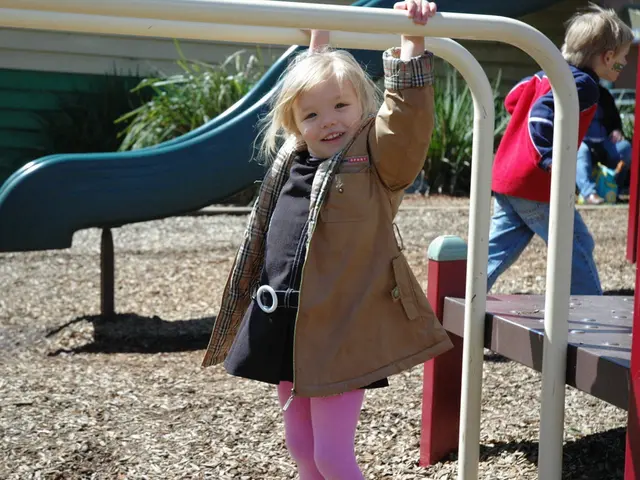Bishop Kopp Warns Against the Danger of Fear-Mongering
Regional Bishop Christian Kopp of the Protestant faith has issued a stern warning against fear-mongers, particularly those on the right. In a sermon during the Day of Prayer and Repentance in Munich, he reminded us that there are individuals exploiting people's emotions to advance nationalist and anti-democratic agendas.
Kopp emphasized the importance of trust and an effective social policy while addressing the populist right. He proposed that a voluntary year of community service could be a valuable tool in fostering trust in our communities. Kopp believed that individuals who complete such a program are less likely to spread negativity towards those who face challenges in life.
Bishop Kopp suggested that the holiday season, with its spirit of giving and unity, could be an excellent time to implement such a program. He further reasoned that by helping others, individuals not only help their fellow human beings but also foster a more positive outlook on life.
Volunteering's Impact on Trust and Community Cohesion
Though direct evidence supporting the claim is not provided, studies reveal the general benefits of volunteering. Engaging in volunteer work can lead to improved social skills, reduced loneliness, and improved mental well-being. This, in turn, can help create trust and boost community cohesion.
Moreover, volunteering can introduce individuals to diverse perspectives and experiences, which can be vital in fostering tolerance and understanding. During holiday seasons like Christmas, volunteers' interactions can promote generosity, strengthen community bonds, and enhance feelings of appreciation and gratitude.
Addressing Populism with Volunteerism
While specific evidence about the effectiveness of a voluntary year of social service in combating populism is lacking, the potential benefits of volunteering pose several possibilities. For instance, the sense of purpose and belonging volunteers gain may help bridge social divides. Volunteering may also empower individuals and improve their mental well-being, making them more resistant to negative influences.
In closing, Kopp's appeal to promote trust, social welfare, and volunteering as a means of countering populism may inspire us to reflect on how we can contribute positively to our communities during the holiday season and beyond. By embracing volunteerism, we can help foster a more inclusive, understanding, and compassionate society.








